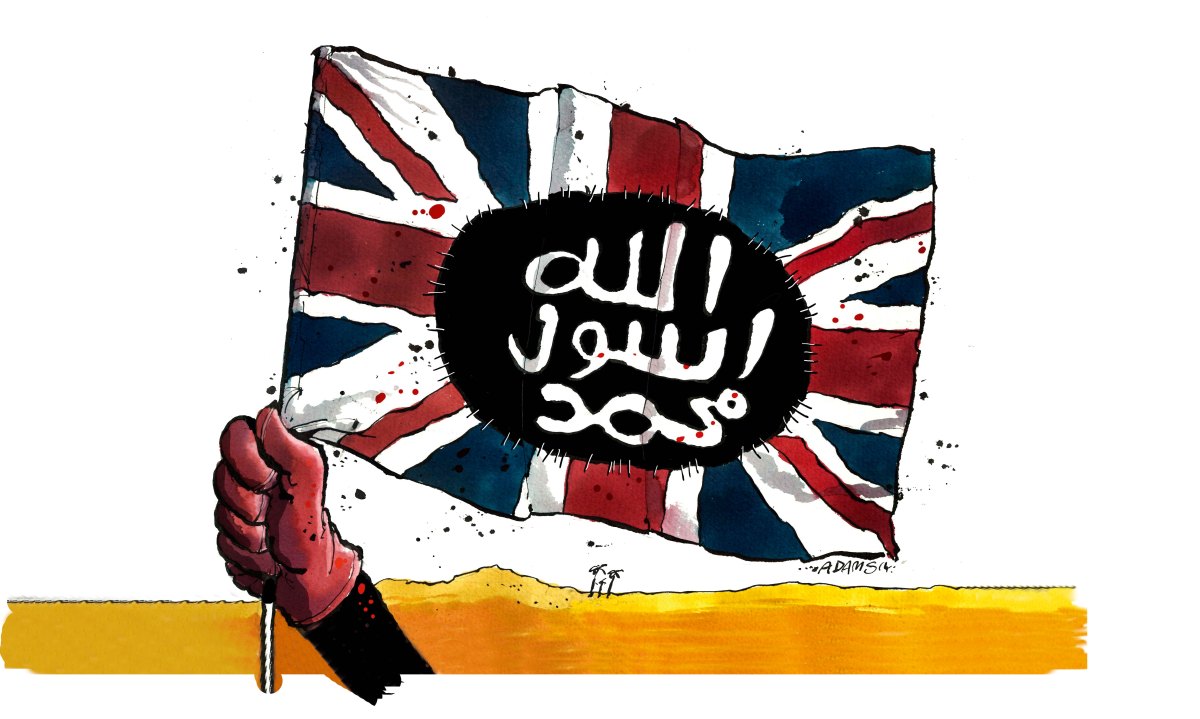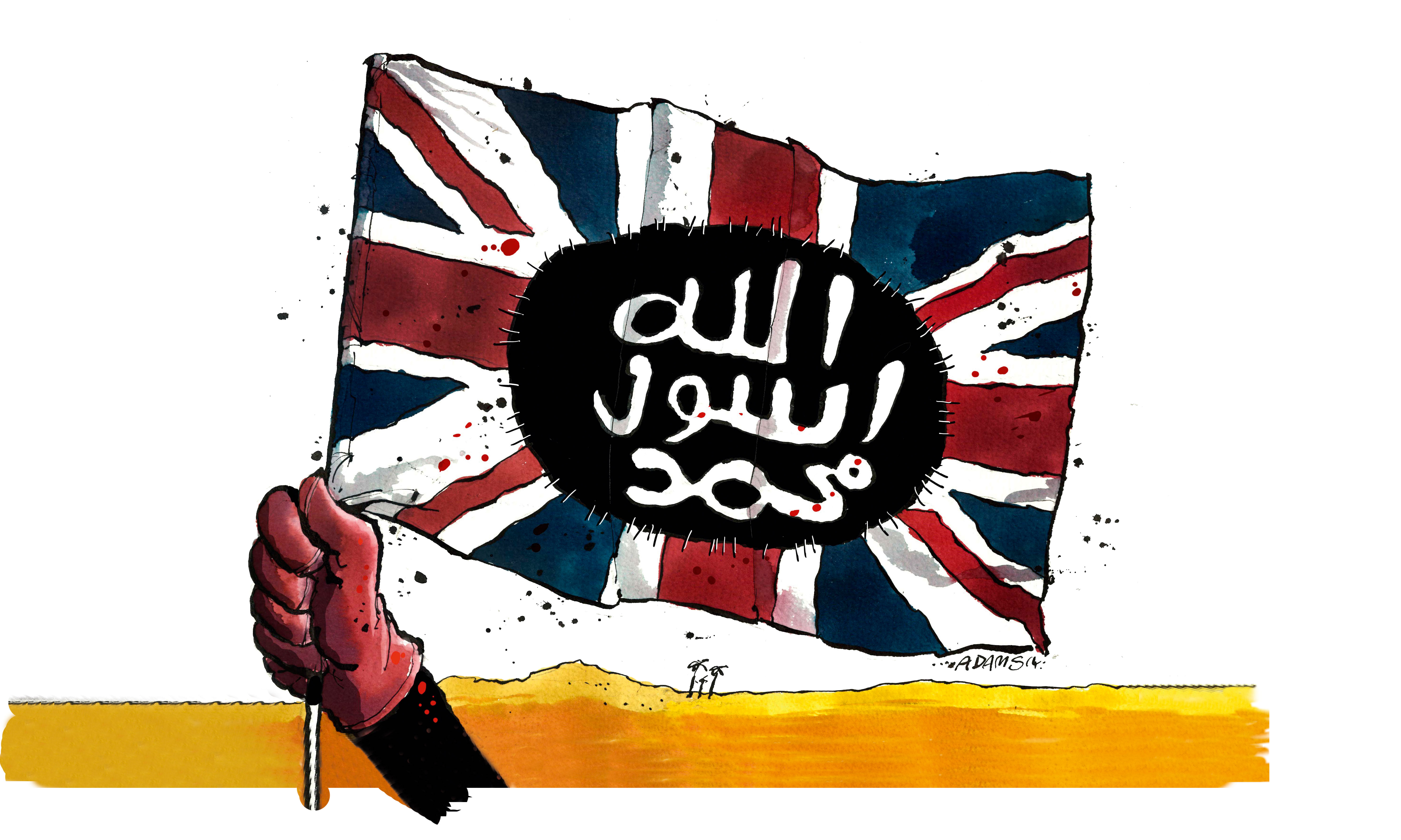Fifteen months ago Philip Hammond talked about treason. In an exchange with Conservative backbencher Philip Hollobone in the House of Commons, the Foreign Secretary declared: ‘We have seen people declaring that they have sworn personal allegiance to the so-called Islamic State. That does raise questions about their loyalty and allegiance to this country and about whether, as my honourable friend rightly says, the offence of treason could have been committed.’ Mr Hammond promised to refer the matter to the Home Secretary, Theresa May, but the silence since has been deafening.
Meanwhile the number of Britons travelling to Syria to join Isis continues to rise. 800 at the last count, according to a statement by the Foreign Secretary last week, of which an estimated 400 have returned home. How many still wish to wage jihad against the West isn’t known but according to the Sunday Times around fifty are considered ‘high-risk’ and ‘are involved in plotting attacks against Britain’. The police and security services are monitoring them but is that cause for confidence? It was reported earlier in the month that 18 men described as ‘terror suspects’ were able to leave Britain and join Isis and other jihadi groups ‘while being investigated by the security services’.
Since Mr Hammond was asked about charging British jihadists with treason in October 2014 the war with Isis has expanded, in both Europe and the Middle East. Hundreds of civilians have been slaughtered by Isis in attacks in Paris, Tunisia and Istanbul, as well as in the downing of a Russian passenger jet over Egypt. The RAF are now bombing Isis positions and British Special Forces are believed to be on the ground in Syria, increasing the possibility of Briton fighting Briton.
The West is effectively at war with Isis and yet no returning British jihadist has been charged with treason. Nor those Isis supporters too cowardly to fight for a caliphate in Syria, so who instead strut down British streets making threats against Parliament and the people. Channel Four’s ‘The Jihadis Next Door’, which was broadcast on Tuesday evening, featured two Isis sympathisers laughing at execution videos. ‘We are calling for world domination, and for shariah for the UK,’ declared one. ‘And for that alone, our message is quite deadly.’
The government needs to send a message of its own by changing its approach to how it deals with British jihadists. Isis is not a terrorist organisation; the territory controlled by its 30,000 well-equipped soldiers in Syria and Iraq is substantial. As Professor Audrey Kurth Cronin, director of the International Security Program at George Mason University, wrote in an essay last year: ‘If Isis is purely and simply anything, it is a pseudo-state led by a conventional army. And that is why the counterterrorism and counterinsurgency strategies that greatly diminished the threat from al Qaeda will not work against Isis.’
Any Briton who fights for or supports the Islamic State shouldn’t be charged with terrorism offences – as was the case with the two Britons convicted last week of propagating Isis ideology on Oxford Street – but they should stand trial for treason. The Treason Act of 1351 is still in force and lists among its definitions of treachery, ‘levying War [and] adhering to the King’s Enemies.’
It’s seventy years this month since the last person was hanged for betraying the Monarch and his treason was mild in comparison to that of the Britons fighting for Isis. For a start, William Joyce wasn’t even British – he was an American-born Irishman who had lied about his birthplace to obtain a British passport. Joyce used the passport to travel from London to Germany in August 1939, and within a few months he was broadcasting Nazi propaganda over the British airwaves. His sneering, faux upper-class voice spawned his nickname, Lord Haw-Haw, and while at first a figure of fun he became an irritant to a British establishment concerned that his broadcasts might damage the people’s morale. Joyce was arrested within weeks of the war’s end and sent for trial at the Old Bailey charged with high treason on two counts of having broadcast for the enemy and on one count ‘of purporting to become on 26th September 1940 a naturalised German subject’.
Asked to explain why he had broadcast Nazi propaganda Joyce – who had been discharged from the British army for being underage before joining Oswald Mosley’s British Union of Fascists – replied truthfully that he had hoped to convince the British people that Bolshevism was a far graver threat than fascism. Two of the three counts of high treason were soon thrown out by the judge after it was established that Joyce was not a British subject.
On the third count, however, Joyce was convicted because of the British passport he had fraudulently obtained by claiming he’d been born in Ireland. In the judge’s view Joyce possessed a British passport and therefore owed allegiance to the Crown. Joyce was hanged in January 1946. He was a fascist and a fool, but unlike today’s generation of embittered young men fighting for the enemy, he neither fought nor threatened fellow Britons. Isis is every bit as brutal as the Nazi regime, yet these modern-day British fascists appear to be free to come and go as they please.
Seventy years from now historians will surely look back with incredulity at the supine response of the British government to this corps of traitors living among us. In May 1940 Oswald Mosley and eight fellow fascists were arrested and subsequently imprisoned on the orders of the Home Secretary because they belonged to ‘organisations which have had associations with the enemy or are subject to foreign influence or control and which may be used for purposes prejudicial to the national security’.
We imprisoned Mosley, hanged Haw-Haw, but now host hundreds of men who have fought for an enemy that wants to see the black flag of Isis flying over the houses of Parliament. They should be put on trial, not for terrorism, but for treason.








Comments